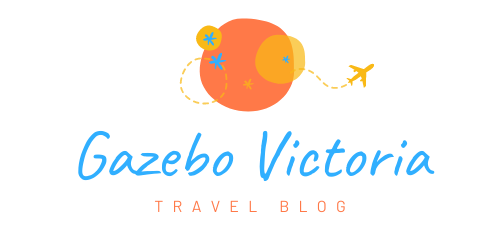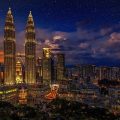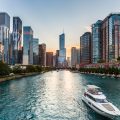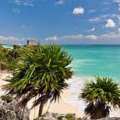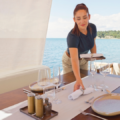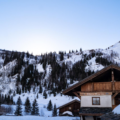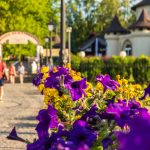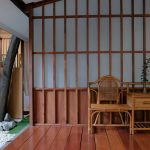Discover Vibrant LGBTQ+ Culture in Buenos Aires
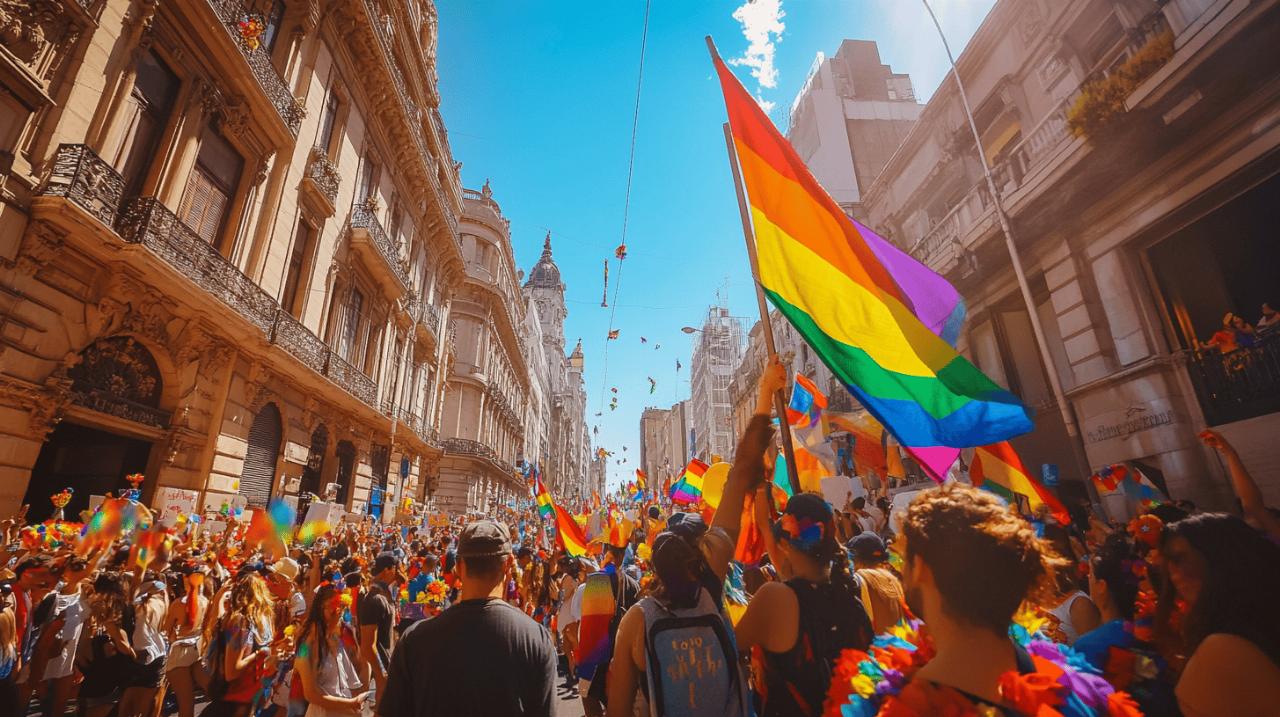
Welcome to the vibrant heart of Argentina’s LGBTQ+ scene! Buenos Aires has rightfully earned its reputation as South America’s most inclusive and welcoming metropolis for queer travelers. With its European-inspired architecture, passionate cultural expressions, and progressive attitudes, this city offers an unforgettable experience for LGBTQ+ visitors. Let’s explore what makes Buenos Aires a must-visit destination where diversity is celebrated and embraced.
The Rich History of LGBTQ+ Rights in Buenos Aires
Argentina has established itself as a pioneer of LGBTQ+ rights in Latin America. In 2010, the country made history by becoming the first in the region to legalize same-sex marriage, marking a watershed moment for equality. This milestone didn’t happen overnight but was the result of decades of activism and resilience. For those planning their visit, resources like https://www.walkabout-travel.de/ provide valuable insights into navigating the city’s queer cultural landscape, especially in neighborhoods like Palermo Soho where much of the LGBTQ+ art and culture thrives.
From underground movements to legal recognition
The journey toward LGBTQ+ equality in Buenos Aires began in 1967 with the founding of the first rights group in Argentina. What started as underground movements gradually gained momentum, culminating in the first Pride march in 1992, which drew approximately 300 brave participants. Today, that same march attracts an impressive crowd of around 200,000 people, beginning at the iconic Casa Rosada or Pink House, the seat of the Argentine government. This evolution reflects the remarkable progress made in terms of social acceptance and legal protections for the LGBTQ+ community in Argentina.
Notable LGBTQ+ landmarks and historical sites
Buenos Aires honors its queer history through several significant landmarks. The Carlos Jáuregui Station, opened in 2017, stands as a powerful tribute to one of the country’s most influential sexual diversity activists. This subway station, used by over 300,000 people daily, represents a meaningful acknowledgment of LGBTQ+ contributions to Argentine society. Another important cultural center is Casa Brandon, which has served as an LGBTIQ+ space since 2005, hosting events, exhibitions, and gatherings that celebrate queer identity and expression. These sites not only preserve history but continue to foster community and visibility.
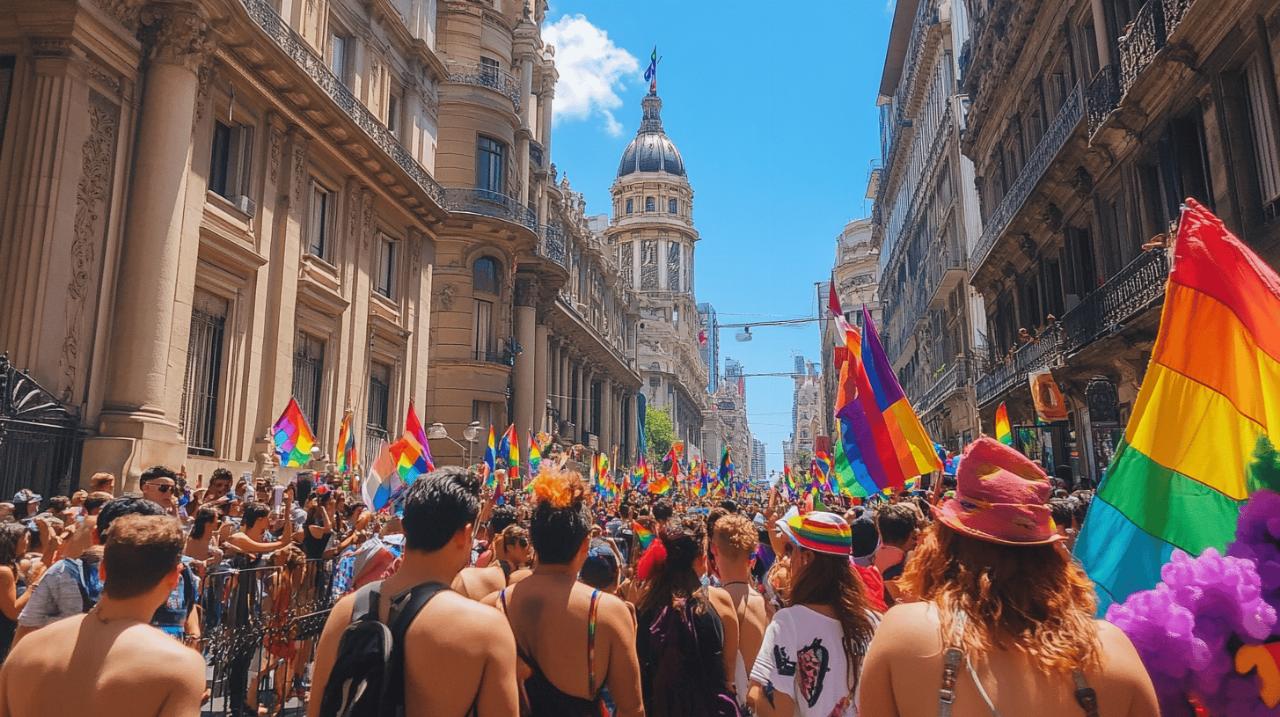
Exploring buenos aires’ LGBTQ+ neighbourhoods and venues
When discovering queer Buenos Aires, certain neighborhoods stand out as particularly welcoming and vibrant. Palermo, Recoleta, and San Telmo form the trinity of LGBTQ+-friendly districts, each with its own distinctive character and attractions. Palermo, especially, has emerged as a trendy area featuring vegetarian and vegan dining options alongside captivating street art. Visitors can even join specialized street art tours with BA Street Art for around $20 USD to appreciate this outdoor gallery through a knowledgeable local perspective.
Palermo and San Telmo: The Heart of Queer Culture
Palermo Soho deserves special attention as the epicenter of Buenos Aires’ LGBTQ+ cultural scene. This area houses numerous queer-owned businesses, artistic venues, and inclusive spaces. The Vitrum Hotel offers comfortable accommodations with its Superior Studio Suite right in this vibrant neighborhood. For daytime socializing, Pride Café stands as Argentina’s first gay bar focused on daytime gatherings, though visitors should note it’s currently closed until its reopening in August 2025. YÖBLA.BAR represents another community treasure, created by queer political migrants as a safe haven for expression and connection. The district also boasts excellent dining options, including La Cabrera, a celebrated parrilla where visitors can savor authentic Argentinian steak.
Nightlife, events and annual pride celebrations
Buenos Aires truly comes alive after dark with its diverse LGBTQ+ nightlife offerings. Peuteo welcomes revelers Wednesday through Sunday from 6 p.m. until 3 a.m., while Puticlú opens its doors Tuesday through Sunday from 9 p.m. For women and non-binary folks, Rose Girls hosts parties on Thursdays and Saturdays, with special Mega Rose Girls events on Sundays sometimes drawing over 1,000 attendees. Club 69 at Niceto Club has become a Thursday night institution, and La Jolie Party offers free Wednesday gatherings at Club Araoz from 11 p.m. until 4 a.m. Beyond nightlife, the annual Pride March in November stands as the culmination of queer celebration in Buenos Aires, having grown from its humble beginnings to become one of South America’s largest pride events. Though Argentina recognizes June as Pride Month and International Pride Day on June 28th commemorating the Stonewall Riots, the November march specifically honors the founding of the country’s first sexual diversity group.
Whether you’re exploring historical sites, enjoying the lively nightlife, or simply soaking in the accepting atmosphere, Buenos Aires offers a rich tapestry of experiences for LGBTQ+ travelers. With its combination of European charm, Latin passion, and progressive values, the Paris of South America continues to stand as a beacon of inclusion in the region. Just remember practical travel tips like using hotel safes for valuables, considering a Sim Local eSIM for connectivity, and expecting to tip 10-15% at restaurants when enjoying all that this magnificent city has to offer the LGBTQ+ community and its allies.
